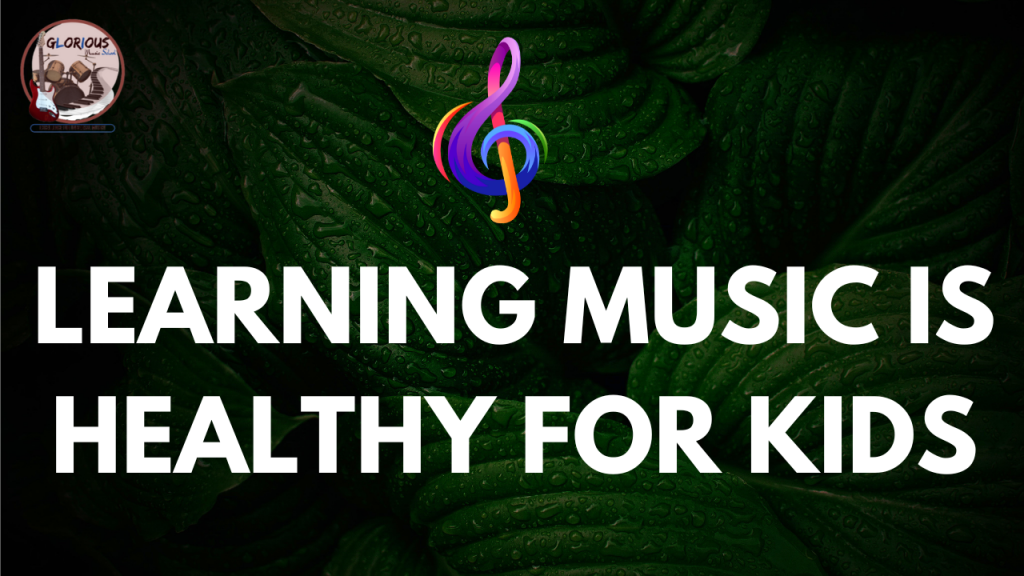Why Learning Music is Healthy for Kids
Learning music offers numerous health benefits for children that extend beyond the realm of melodies and rhythms. In this discussion, we’ll delve into why learning music is particularly healthy and advantageous for kids, shedding light on its positive impacts on their cognitive, emotional, and social development.
-
Cognitive Advancement:
Embracing music education stimulates various regions of a child’s brain, enhancing their cognitive skills. Studying music has demonstrated its ability to enhance memory, concentration, and problem-solving aptitude. When children partake in activities like deciphering musical notation, grasping rhythm, and playing musical instruments, they cultivate fundamental cognitive skills that can be applied to excel in their academic pursuits across various subjects.
-
Emotional Expression:
Music serves as a potent medium for conveying emotions, and acquiring musical skills provides children with a constructive avenue to express and delve into their feelings. Whether by singing or mastering an instrument, children can convey their feelings in ways that can be challenging through words alone. This avenue for emotional expression nurtures self-awareness, enhances emotional intelligence, and contributes to overall emotional well-being.
-
Social Skills and Collaboration:
Music education frequently involves group activities, such as ensemble playing or choir singing. These collaborative experiences promote teamwork, cooperation, and effective communication skills. Children learn to attentively listen to others, coordinate their actions, and work harmoniously toward shared goals, cultivating social bonds and a sense of belonging.
-
Discipline and Time Management:
Learning music necessitates commitment, discipline, and consistent practice. Hence, children learn discipline, time management techniques, and the capacity to set and achieve goals through common practice sessions. Their lives are affected by this discipline, which instils a strong work ethic and sense of responsibility.
-
Confidence and Self-Esteem:
Children build a strong sense of accomplishment and self-confidence as they progress in their musical journey and reach milestones. Public performances, whether recitals or concerts, bolster self-esteem and aid children in conquering stage fright. Children can develop self-assurance, self-belief, and a good self-image in a loving setting through music education.
Learn Music with Us:
We offer in-depth music lessons at our music school so that individuals of all ages may learn and succeed in the field of music. Whether you’re a beginner or an aspiring professional, our staff of knowledgeable teachers and a wide range of music programmes have been carefully chosen to give you the guidance and motivation you need to develop your musical abilities. Unlocking your musical potential with us will take you on a journey of expressing yourself, innovation, and personal growth.

